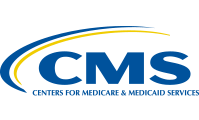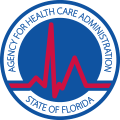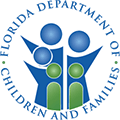North Tampa Behavioral Health is a leading treatment center for individuals struggling with Bipolar Disorder. Located in Wesley Chapel, the expert staff at North Tampa provides lasting recovery through holistic care and comprehensive programming.
Treatment for Bipolar Disorder
Learn more about treatment for bipolar disorder in North Tampa
Individuals with bipolar disorder, whether it’s Bipolar I, Bipolar II, or Cyclothymic Disorder, experience far more intense mood swings. These mood swings can range from depression to mania and cause many problems in your personal and professional life. You may be unable to get out of bed for days, but then wake up feeling as though you can do anything in the world. It is this pattern of mania and depression that can lead to intense interpersonal problems. These extremes in emotions can lead to a large amount of chaos and distress for people affected by bipolar disorder. Bipolar disorder is treatable, but it can be hard to identify the warning signs and get the help you need. Recognizing the problem is the first step toward effective recovery.
While successful recovery from bipolar disorder doesn’t happen immediately, with the right support and treatment plan you can get better. At our psychiatric treatment center, we’re dedicated to providing you with a safe and supportive setting as you learn about your disorder and how to more effectively cope with your symptoms.
Helping a Loved One
How to convince a loved one to seek treatment for bipolar disorder
If you have a loved one that is struggling with bipolar disorder it can be extremely difficult to watch them suffer and feel helpless as to what you can do to help. You may know that they need help, but are unsure of how to approach the situation.
When you do decide to approach the topic of seeking care for bipolar disorder at a psychiatric treatment center, make sure you do it in a way that is nonthreatening. Keep calm and listen to your loved one’s concerns and problems they are currently facing. If needed, contact a therapist at an inpatient center to get advice on how to approach this topic, as they can provide you with some help. If your loved one agrees to enter an inpatient program, take the time to pick a program that you will both be comfortable with. Offer them unconditional support because they are most likely going to be afraid and vulnerable at this point.
Why Consider Us
Why consider inpatient treatment at North Tampa Behavioral Health
Bipolar disorder is a very serious and often progressive illness that can cause many problems for those affected by it. People who are depressed may feel hollow and worthless and unable to get out of bed each morning, while a person feeling manic may decide on a whim to quit their job and move across the country. The severity of emotions can affect every facet of your life. You may have a history of unstable relationships with other people, you may be unable to hold down a steady job, or you may end up in trouble with the law. People who do not treat their bipolar disorder may experience increasing symptoms over time, which can become so intense that people may choose to end their lives.
It is very normal to feel frightened and unsure about entering seeking care at a psychiatric treatment center; however, from the moment you walk through our doors at North Tampa Behavioral Health Hospital, we will work hard to make sure you feel safe and supported. Using a combination of treatments, our dedicated staff will work with you to set you at ease and teach you the valuable skills needed to live a full and manageable life.
Philosophy and Benefits
Our rehab program’s philosophy and benefits
As the leading psychiatric treatment center for bipolar disorder in Tampa, we believe the best treatment involves treating the whole individual. Our accepting and compassionate staff provides an idyllic setting for you to begin your healing process. The first step in our recovery process is to establish a sense of security and to focus on the most acute stressors you are experiencing.
We approach bipolar disorder treatment with an eclectic method, using a variety of techniques to get you stabilized and help you find your own path to recovery. We want you to see your positive qualities and get to know the real you. The treatment team at North Tampa wants to know your entire story and we will truly listen to what you have to say.
Types of Therapy
Types of therapy we use to treat bipolar disorder
Bipolar disorder is an illness that requires long-term therapy to be effectively treated. We offer many approaches that have been shown to be effective for treating this disorder. While the treatment plan will change from person to person, cognitive behavioral therapy and medication therapy approaches generally form the foundation of therapy. Other techniques and approaches that best match the individual’s style, way of interacting with the world, and personal preferences are used to create the most appropriate and individualized plan for each resident.
At our bipolar disorder treatment center, we don’t have a set template of treatment approaches that we apply to everyone. While two people with bipolar disorder may appear very similar in the way they present, they may require very different treatment plans based on who they are as individuals and how they will respond.
If you and your treatment team at North Tampa decide that medication is appropriate for your treatment plan, you will receive medication in combination with other therapeutic interventions. Medication alone is not enough to manage all your symptoms; it is our mission to treat the whole person. The best treatments for bipolar disorder include a mixture of medication management and long-term therapies.
Medications:
Mood Stabilizers – Many medications that are used to prevent seizures have also proven to be helpful in managing the symptoms of bipolar disorder. Lithium is the oldest and most well-known mood stabilizer and is very effective in treating manic episodes. Valproic acid is an alternative if lithium is not well-tolerated.
Antidepressants – While often used to treat episodes of depression in people with bipolar disorder, this usage is becoming more controversial as antidepressants can trigger mania and increase mood cycling.
Anti-psychotics – Sometimes, people who have bipolar disorder lose touch with reality during a manic or depressive episode. If that happens, an anti-psychotic may be used. Anti-psychotics have been helpful for many people who have not tolerated mood stabilizers well because this class of drug can assist during manic episodes.
Therapies:
Cognitive Behavioral Therapy (CBT) is a form of therapy that is used at our bipolar disorder treatment center to help you examine how your thoughts affect your emotions and behaviors. Through cognitive behavioral therapy, we will help you learn how to recognize your negative thinking style and restructure your maladaptive thoughts, which will result in better moods and more positive ways of reacting to stress.
Recovery Model therapy supports the potential for a person to recover from their bipolar disorder. Recovery is seen as a personal journey instead of a fixed outcome, and may focus upon developing a sense of self, feelings of hope, a secure environment, sense of purpose, empowerment, encourage supportive relationships, social inclusion, and continual creation of coping skills.
Group therapy is another important type of therapy offered at North Tampa. There are a number of groups available to you and some will be recommended by your treatment team. Some of our groups may include process groups, psycho-educational groups, and skills-based groups. In our process groups, you will be able to share the struggles and concerns you face living with bipolar disorder with others who are struggling with similar disorders. Psycho-educational groups are used to educate you about your bipolar disorder and medication management, as well as other recovery-specific topics. Skills-based groups may focus on teaching you effective coping strategies and stress management, as well as relapse prevention.
We consider family involvement a crucial part of healing, as the effects of bipolar disorder can cause chaos in interpersonal relationships. A family consultation session will attempt to address any family dynamic issues associated with your bipolar disorder so that you can work toward restoring a healthy and happy home environment. We pride ourselves on our connections within the community and ability to link both family members and patients with a variety of community resources in Tampa and elsewhere that we feel will be beneficial to them.
Continuing Care
Continuing care – what comes next?
We work with you on discharge planning from the time you arrive at our psychiatric treatment center. This is to ensure that both you and the treatment team are satisfied with the plan for the next steps you will take and that the proper outside services are located. We understand that change can be scary and we want to make the transition to your new treatment track or therapist as smooth as possible. We will discuss discharge planning with you and answer any questions you have until you feel the choice decided upon is the best option to help you continue healing.
Depending upon your needs you may be set up with a Partial Hospitalization Program (PHP) or an Intensive Outpatient Program (IOP). The types of services offered in these programs can vary depending on the program. If you feel the need for support 24/7 and more intensive services but want to live in a more normal environment, a residential program may be an ideal option for you prior to transitioning to an outpatient program.
Some people may feel as though they have made enough progress during their inpatient treatment to continue their recovery on an outpatient basis. In this case, we will work with local providers to find a provider experienced in treatment of bipolar disorder, in addition to a psychiatrist who will assist you with medical management.











